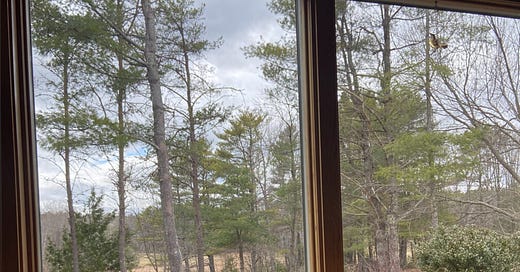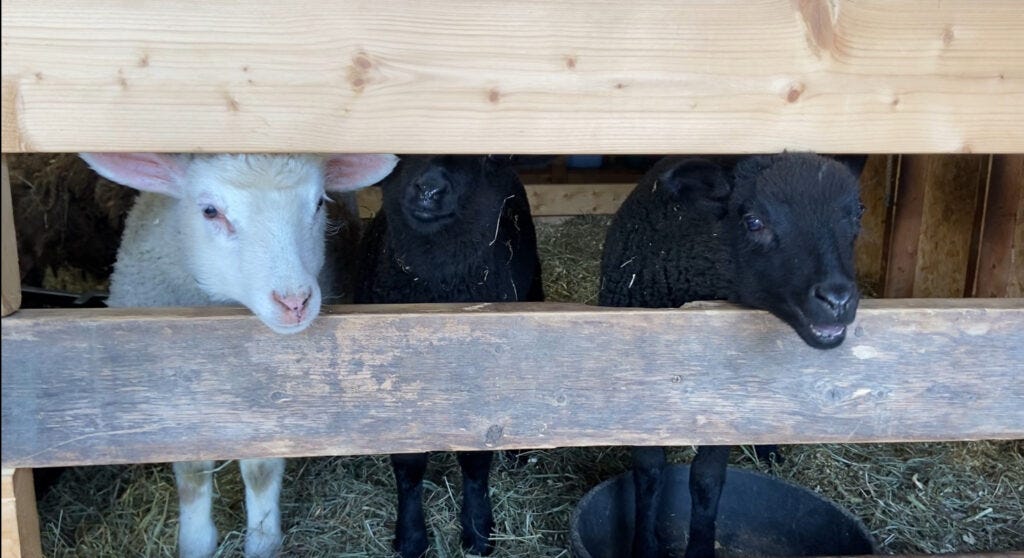The Day You Became a Better Conversationalist
Last week I helped my grandparents move their young sheep from the garage to the field. Their friends Dick and Pat also came over to help. Dick hopped right into the makeshift pen and lured the lambs into my arms so I could carry them around the house. On our walk to the field, I was curious about Dick's skill with animals, so I asked him, "Do you have any sheep at home?" which was a flawed question. Then I asked him, "Where did you learn so much about animals?" which was a much better question. Let me explain.
My Credibility
Before I give you advice on asking good questions and having conversations, I will present my credibility. Every morning I wake up before the sun comes up to teach Chinese children English. Our classes are entirely in English. How do I converse with Chinese children, some of whom are complete beginners in English? With good questions. Also, in college, I took a Dale Carnegie course to refine my already strong communication skills.
Two Important Things
There are two things you need to understand to have good conversations. Firstly, you need to understand people are most interested in themselves. You know this already because you've experienced the irresistible ring of your name yank you out of a daydream in a room full of gibberish. You also know this because people will ask you how your trip to Europe was just so they can tell you about their second cousin who moved to Ireland 15 years ago or how their trip got canceled because of coronavirus. I learned about our impulse to obsessively self-relate at a business lunch in Manhattan. A colleague mentioned his recent trip to Santa Barbara, so I instantly blurted out, "I was just there too!" I was there as a guest but felt like a baboon; it's best to avoid doing this. Once you are aware of it, you are already improving.
Secondly, you need to understand being a good conversationalist is mostly about asking good questions. Your questions should be about the person standing across from you. It's not about being phony; it's about becoming interested in the person you are speaking with. If you can accept that everyone is better than you in some domain–often the domain they gravitate to in conversation given a chance–you should be all ears. You might learn something new.
Back to the Story
Back to the questions, I asked Dick. You might have already guessed but the first question, "Do you have any sheep at home?" was weak because it was a yes or no question. If Dick answers no, it's kind of a buzzkill; people don't like to have to say no. Even if he answers yes, the question doesn't invite him to share anything else. The second question, "Where did you learn how to handle animals so well?" is a good question because it invites him to tell a story about himself. Also, bonus points because it implied that he had a unique talent–skilled with animals–which he did.
To hammer home the point, let me contrast the two answers I received from these questions. From the weak first question, Dick replied, "Ah no, we don't." From the second question, Dick told me he grew up on a 130 chicken farm in Massachusetts. Because they had 10 acres of land, his father, who was home from the war due to polio, could get extra gas ration to commute into Boston. Also, Dick told me how every Easter morning, his parents swapped out the fresh eggs for painted hardboiled ones to his bewilderment. You get the point. Dick told me exciting stories, and we were both better off for it.
Conclusion
To conclude, people are interesting if you give them a chance. If you want to have, better conversations learn how to ask better questions. It will significantly improve your life. Here are some examples where asking questions improved my life:
I learned how to juggle from a master juggler in one hour.
I became a ski instructor at a world renowned resort with minimal skiing experience.
I moved in with my online German tutor.
Lastly, here are two principles about asking questions in conversation:
Ask questions about the other person and their experiences.
Ask questions related to their interests/strengths.
Notes:
Title idea is from Scott Adam's blog post "The Day You Became a Better Writer"
Suggested reading: How to Win Friends and Influence People





